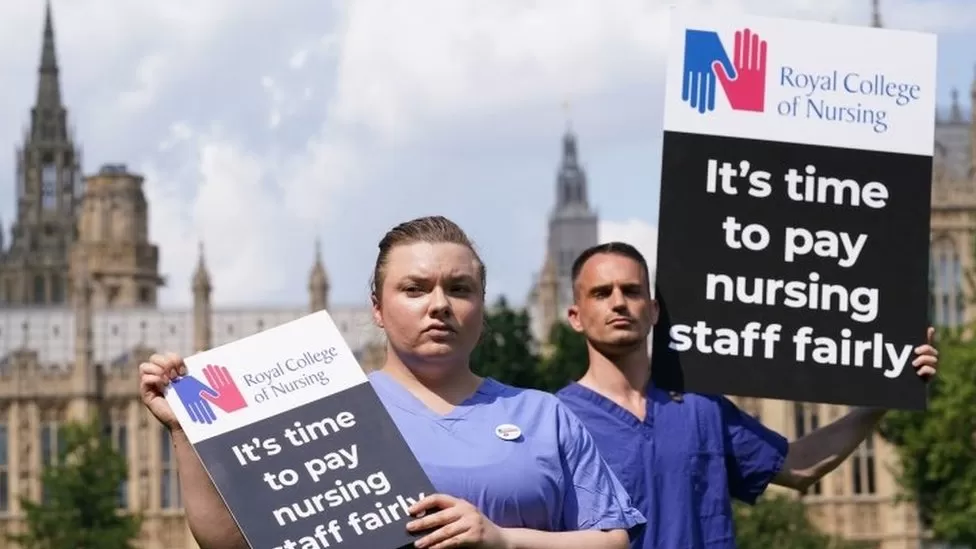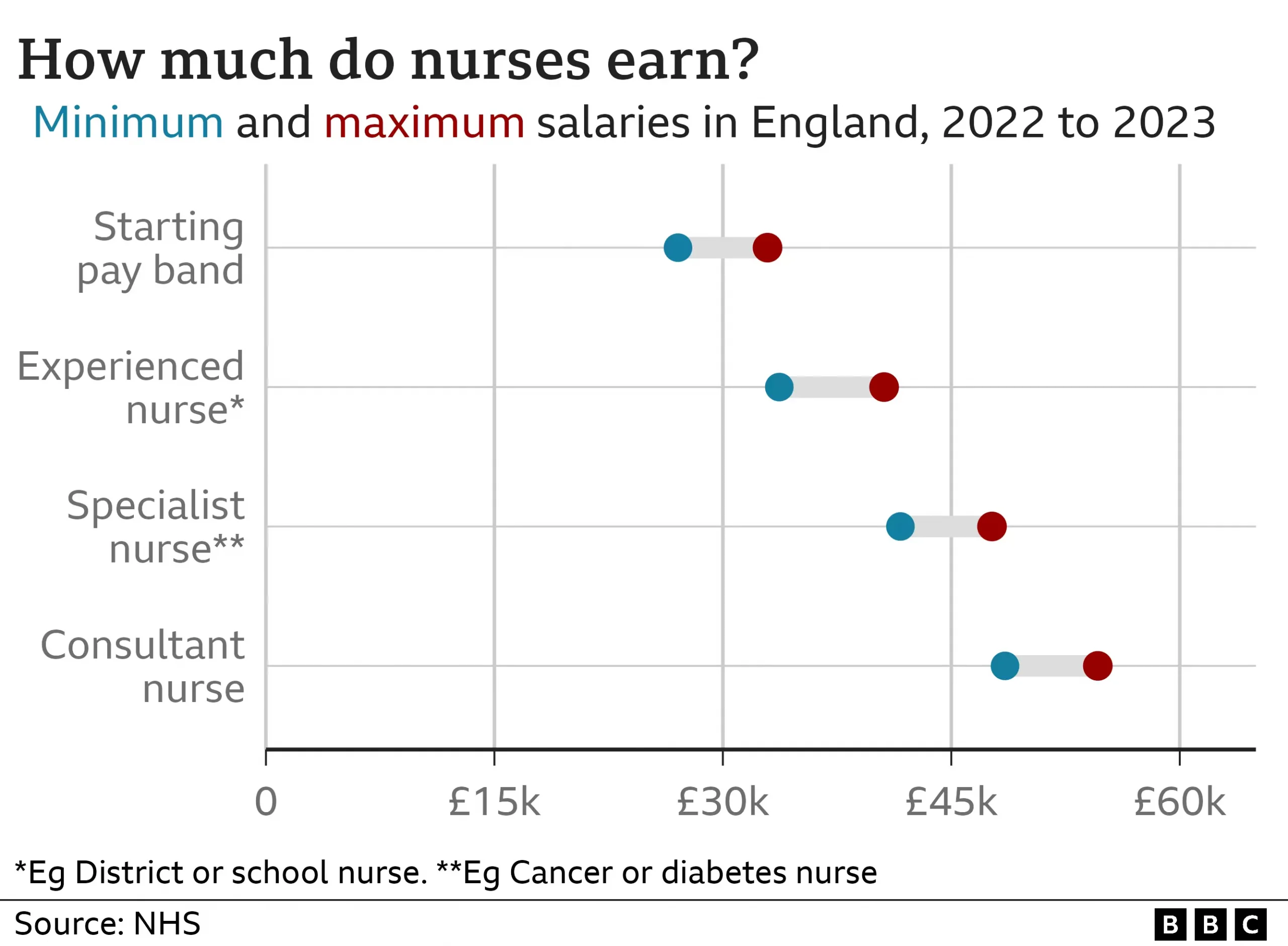The Royal College of Nursing (RCN) – which represents hundreds of thousands of nurses in the UK – is set to announce the results of its strike ballot on Wednesday. It is widely expected that the members will have voted for a walkout. If that happens, it will be the first UK-wide strike by the union in its 106-year history.

Why are nurses being balloted?
The dispute is over pay. The RCN had called for a rise of 5% above the RPI inflation rate, which currently stands at above 12%, but no UK nation has offered close to that. In England and Wales, NHS staff – including nurses – have been given an average of 4.75% more. The lowest paid were guaranteed a rise of at least £1,400. In Scotland, 5% was initially offered to NHS staff, but that has been changed to a flat rate of just over £2,200, which works out at just over 8% for a newly qualified nurse. In Northern Ireland, nurses are yet to receive a pay award because there is no working government. During the ballot, the RCN had argued this year’s below-inflation pay award came after years of squeezes on nurses’ salaries. This union says average pay fell by 6% between 2011 and 2021 for nurses – once inflation was taken into account – compared with a 4.6% drop for whole UK workforce. The RCN says this is compromising care as the NHS is struggling to attract and retain nurses. But the government in England has pointed out this year’s pay award is in line with what the independent NHS Pay Review Body recommended and comes after NHS staff got a 3% rise last year in recognition of their work during the pandemic while the rest of the public sector had a pay freeze. The strike ballot has been sent to 300,000 RCN members – representing nearly three-quarters of the nurse workforce. Which workers are allowed to go on strike? Why are so many workers going on strike? Will there be more train strikes?
How much are nurses paid?
The starting salary for a nurse is England is just over £27,000 a year. This is the bottom of pay band five of the NHS contract, known as Agenda for Change. Staff such as healthcare assistants, porters and cleaners are on lower pay bands. As part of the contract staff are entitled to in-the-job pay increases within their pay band. A nurse with four years’ experience would be expected to get close to £33,000 – the top end of pay band five. Specialist nurses, such as those with extra qualifications to treat cancer and diabetes patients, can get up to £47,000, while the most senior nurse consultants can get up to nearly £55,000. The RCN said the average pay for a full-time established nurse was just above £32,000 last year – similar to average pay across the economy.

What happens next?
The ballot is not a national vote. Instead a series of mini ballots have been run in local services, such as across a hospital trust or community service, but not GP practices. This means you could end up with individual hospitals or community services in one area not taking part, while nurses in the majority of other services still walk out. Once the result is known – and at the weekend RCN sources made clear they were confident that many areas of the UK had voted to go on strike – a decision will then need to be made when to take strike action and what form that should take. It is expected that the first walkout will be before Christmas – in Northern Ireland it has to start within one month of the ballot closing. Two weeks’ notice of a strike taking place must be given.

What might it mean for patients?
The RCN says it is committed to ensuring emergency and urgent care can be kept running during a strike. This is through a system known as derogation whereby union members agree to work to keep a service running. For services such as intensive care there will be a complete derogation – all nursing staff will be expected to work. Other services, such as cancer treatment and urgent testing, may also be staffed to some extent. Much of this will be negotiated individually by service managers and union reps. It is also possible that nurses will be pulled off picket lines to work if there is concern about safety during a strike. This was seen during the 2019 walkout in Northern Ireland by RCN members – the only other time the union has been involved in strike action. Routine services, including planned operations such as knee and hip replacements, community nursing services and health visiting is expected to be among the worst hit.
![]()





